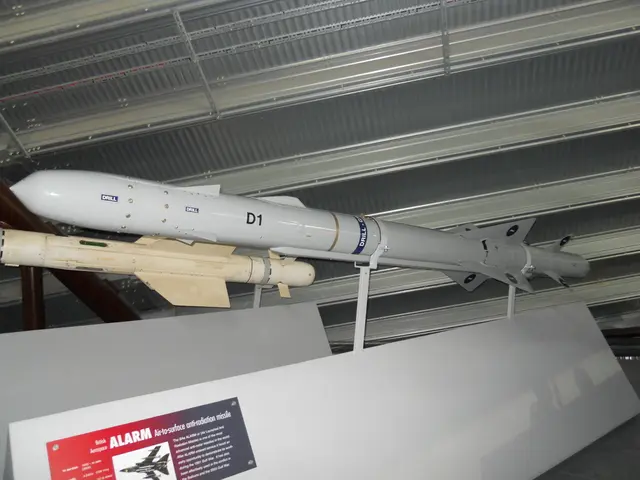Understanding Lessons from Qatar's Experience
In a stark reminder of the complexities of international relations, Qatar's defense systems were recently rendered inoperable, sending a strong message to countries dependent on Western defense procurement. This incident, known as the Doha bombing, has raised military, strategic, and economic alarms for countries like Pakistan, revealing the risks of overreliance on any single bloc.
The Qatari defense grid, valued at $19 billion, includes air defense systems, fighter jets, drones, and missile batteries, many of which are from Western origins. However, these weapons are not primarily intended to defend Doha from threats like Israel or the US, but against weaker regional rivals or for 'coalition missions' aligned with Western designs.
The vulnerability of these defense systems was exposed during the Doha bombing. Qatar's defense systems, it was revealed, are subject to kill-switches, licensing regimes, and political controls embedded within their systems. This situation, deliberately designed by Western allies, has left many questioning the security of such defense systems.
Pakistan, which sits in a volatile neighborhood with an assertive India, unstable Afghanistan, and evolving Middle Eastern crises, finds itself in a similar predicament. The defense systems of Pakistan, like those of Qatar, are primarily dependent on Western technological control. This dependence, some argue, is a losing strategy, as it leaves countries vulnerable to coercion or abandonment, even in the face of significant economic relationships, such as Pakistan's over $1.2 trillion investment in the US market.
The US-Israel relationship is strategic and unwavering, and allies often misinterpret their role in this relationship. The US and Israel's alliance is absolute and immune to negotiation, and the expectation that billions of dollars in arms purchases could buy protection against this alliance is a fatal miscalculation. This was demonstrated in the case of the Doha bombing, where Israel's targeting of the Hamas leadership in Doha was a demonstration of imperial realpolitik.
The political economy of dependence, whether military or financial, is a house built on sand. Pakistan must prioritize domestic industrial capacity, indigenous defense production, and economic self-reliance. Pakistan has already taken steps in this direction, with a strategic partnership with China, including the co-production of fighter jets like the JF-17 Thunder and growing naval cooperation.
For smaller states in the Middle East, massive defense spending has been justified as an insurance policy against aggression. However, the Doha bombing serves as a stark reminder that such investments may not always provide the security they promise. As such, these countries must carefully consider their strategic alliances and strive for greater self-reliance in their defense capabilities.








